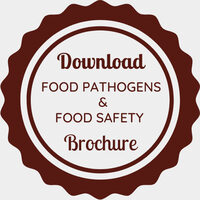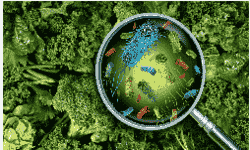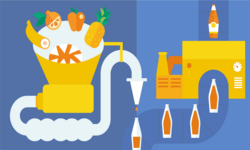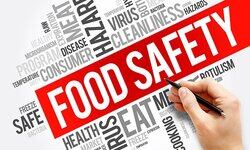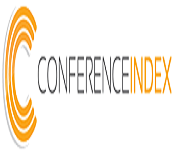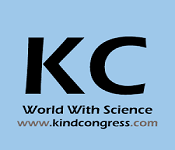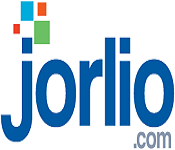Renowned Speakers

Dr. Prakash R Kondekar
Director, Indian Institute of Naturopathy, Mumbai. India

Dr. Marcela Albuquerque
CEO, NEPP - Center for Studies in Probiotics and Prebiotics France

Ms. Niloofar Pejman
Polytechnic University of Catalonia, Barcelona Spain

Dr. Hisham R Ibrahim
The Graduate School of Agriculture, Kagoshima University, Japan

Maciej Combrzyński
University of Life Sciences in Lublin, Poland

Beata Biernacka
University of Life Sciences in Lublin, Poland

Tomasz Oniszczuk
University of Life Sciences in Lublin Poland

Agnieszka Wójtowicz
University Of Life sciences in Lublin Poland
Recommended Global Agri, Food & Aqua Webinars & Conferences
Europe & UK
Asia Pacific & Middle East
Canada
Food pathogen and Safety 2022
About Conference
9th International Conference on Food Pathogens and Food Safety which will be held within the wonderful city of Paris, France in the period June 20-21, 2022. This International Food Conference will be hosted at the Millennium Hotels Charles de Gaulle Airport which is easily accessible from the airport, train station or city centre.
This Food Pathogens and Safety 2022 Conference is a 2-day in-person conference which will give you a complete view of innovations and new ideas that are thrusting a revolution in the food industry. This is your opportunity to meet and network with the best minds within the world of food, nutrition, agriculture, beverage, and wellness.
Table of Content
- Who should attend?
- Why attend this Food Conference?
- Conference Brochure
- Past Scientific Progam
- Covid-19 Guidelines
- Call for Contribution
- Abstract Submission Criteria
- Conference Venue Details
- About France VISA
- Poster Presentation Guidelines
- Speaker Guidelines
Who Should Attend?
Food Pathogens and Food Safety 2022 will bring together the Food Scientists, Sensory analysis, Food Analyst, Flavour Scientists, Nutritionists, Agronomist, Microbiologists, Chemists, Quality Assurance Specialists, and Quality Assurance Managers, Specialists in Veterinary and Animal Foods, Product Recall Specialists, Product Development Specialists, Quality Control Specialists, Machine Development Specialists, Equipment Handling Specialist etc.

Individuals involved in Agriculture, Investors, Startup, Government Organization, Researchers and Lecturers and Students to enhance the knowledge about Food and Agri and connect the experts to find the answer about the crucial problems e.g hunger, obesity, Food Security.
Why attend this Food Conference?
- Young Scientist Award recognition certificate and memento to the winners.
- Our conferences provide best Platform for your research through oral presentations.
- Learn about career improvement with all the latest technologies by networking.
- Young Scientists will get appropriate and timely information by this Forum.
- Platform for collaboration among young researchers for better development.
- Provide a fortuity for research interaction and established senior investigators across the globe in the area.
- Share the ideas with both eminent researchers and mentors.
- It's a great privilege for young researchers to learn about the research areas for expanding their research knowledge.
Conference Brochure:
To download the conference Brochure, please fill the required details in the Form and click on Download Brochure. Food Pathogen and Safety Conference Brochure will be downloaded.
Covid-19 Guidelines:
Our Food Pathogen and Food Safety organizing team assure you that we will take all the necessary precautions underlined by the Centers for Disease Control and Prevention (CDC) along with local state authorities. Our Conference team is working 24/7 to ensure your safety which is why we are operating round the clock and regularly examining the situation.
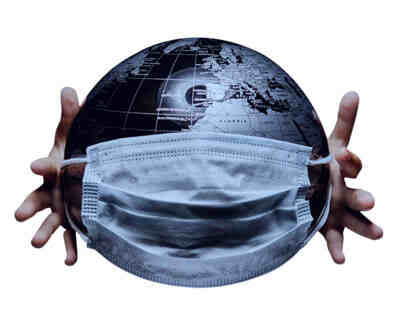
Currently, our conference team is approaching details with care. We consider that transparent communication with our speakers, delegates, and team members is important. Along with our venue partners, we will be implementing Health & Safety protocols to lower the risk of transmissions during the event.
This Upcoming Food Conference 2022 has also developed a multi-model approach, which includes sanitization of high-touch areas, encouraging social distancing, temperature check and mask-wearing in the venue, taking into account every aspects of the delegate experience. We have also united our efforts with health and safety experts in order that you'll enjoy the conference offerings with utmost ease and confidence.
Call for Contribution:
International Conference on Food Pathogens and Food Safety is the premier Conference for the presentation of new research and advances results in the fields of theoretical, experimental, and applied Food Sciences. The conference will bring together leading researchers, engineers and scientists in the domain of interest from around the world.
Prospective authors are kindly encouraged to contribute to and help shape the conference through submissions of their research abstracts, papers and e-posters. Also, high quality research contributions describing original and unpublished results of conceptual, constructive, empirical, experimental, or theoretical work in all areas of Foodborne Pathogen and Food Safety are cordially invited for presentation at the conference. The conference solicits contributions of abstracts, papers and e-posters that address themes and topics of the conference, including figures, tables and references of novel research materials.
Topics of interest for submission include, but are not limited to:
- Food Microbiology
- Dairy agricultural biotechnology
- Food and Nutritional Science
- Food Quality Assurance and Quality Control
- Food Biotechnology
- Food Chemistry and Biochemistry
- Food Engineering
- Food Composition
- Food Fortification
- Food Packaging and Equipment
- Food Processing and Preservation
- Food Production
- Food safety and Security
- Food supplements
- Food Technology
- Food supplementation
- Food microstructure development and characterization
- Food properties including thermal, chemical and mechanical properties
- Food Sensory and Flavours
- Food Texture and Rheology
- Functional Food and Bioactive Factors
- Functional foods, nutrition, nutraceuticals & bioactives
- Enzyme Engineering
- Contamination of food
- Temperature control and traceability
- Pesticides and nutrients Food characterization
- Food Waste Management
- Food Regulation and Policy
- Food Industry and Innovation
Abstract Submission Criteria:
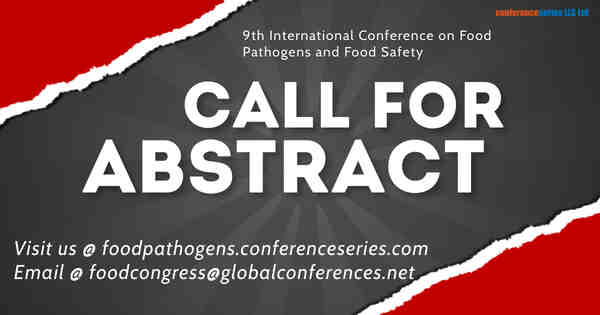
- The Abstract should be written in English.
- Please indicate one - three most relevant themes for your abstract from the conference tracks.
- Please send in a brief biography together with the Abstract (An example is given in the abstract template).
- Please download the abstract template and follow the format carefully.
- Documents that do not conform to the guidelines will be asked to revise.
- Documents received after the given deadline, due to any reason will not be accepted unless the deadline is extended.
- The abstract should be submitted in the format of MS Word (.doc or .docx) document.
Conference Venue Details
Paris, city and capital of France, situated in the north-central part of the country. For centuries Paris has been one of the world’s most important and attractive cities. It is appreciated for the opportunities it offers for business and commerce, for study, for culture, and for entertainment;. ..Click here to know more
About France VISA
For conference attendance and participation only Business Visa should be applied. Contact your nearest travel agent/visa information centre/France Embassy for the correct application form. All visas for visiting France shall be processed by respective authorities only upon submission of proper documents through proper channel.
In case of non-furnishing of documents, non-adherence to guidelines visas shall be cancelled by respective authorities. The minimum supportive documents that might be required while applying for France visa include:
- Letter of Invitation,
- Abstract acceptance letter (if speaker),
- Registration payment receipt,
- Accommodation confirmation letter issued under conference letter head.
For letter of invitation and accommodation confirmation, payment of registration fees and accommodation charges is a pre-requisite. Mandate documents required from conference secretariat should be obtained only through Food Pathogen and Safety Conference Organizing team.
Scientific Sessions
Foodborne pathogens represent a major burden on society as they are the cause of high numbers of illnesses, hospitalizations, and deaths each year. In addition to their detrimental impact on human health, these microorganisms, which include pathogenic bacteria, viruses, fungi, and a range of parasites, also represent a significant economic cost to food companies in the implementation and constant oversight of food hygiene and safety programs, product recalls, and potential litigation if outbreaks occur.
SESSION 1: FOODBORNE INFECTIONS AND DISEASES
Foodborne disease (as foodborne illness or food poisoning) is any illness that results from the consumption of contaminated food, contaminated with pathogenic bacteria, viruses, or parasites. Foodborne disease globally is still not under control and outbreaks can cause health and economic losses. There are 31 main foodborne pathogens causing diseases; the significant ones such as Salmonella nontyphoidal, Campylobacter, Listeria, and Shiga toxin-producing Escherichia coli are monitored by national authorities, and outbreaks are assessed in depth to assess trends and determine the steps necessary to combat future outbreaks.
- Emerging foodborne pathogens
- Causes and symptoms of foodborne illness
- Microbial Toxins, Virulence and Toxicity
- Bacteria and Enterotoxins
- Mycotoxins and alimentary mycotoxicoses
- Incubation period and Infectious dose
- Viruses and parasites
- Food poisoning
- Intoxications
- Epidemiology of foodborne illness
- Food Toxicology and Allergies
SESSION 2: FOOD MICROBIOLOGY
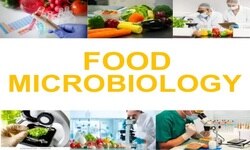
Food microbiology is the study of the microorganisms which spoils and contaminates the food. The diseases caused by pathogens or the microorganism are mainly because of the food which is improperly cooked or stored. It cultivates microorganisms that have both useful and harmful impact on food quality and safety and may therefore be of concern to public health.
- Microbiology of fermented foods and beverages
- Food mycology
- Predictive microbiology
- Microbial aspects of food spoilage and quality
- Industrial microbiology
- Nutritional availability in foods
- Applications of indicator organisms
- Factors affecting the growth of food micro-organisms
- Adoption of biofilms in food
- Food Spoilage and Preservation
- Vegetable (water) Processing
- Fermentation of Food Waste Streams
SESSION 3: FOOD TECHNOLOGY
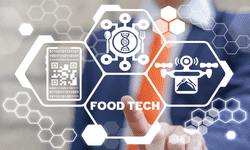
Food is a basic need for people to survive. Food Science is a branch of science that deals with the investigation of the physical, chemical, and biological formation of food and food ingredients. The applications of food science innovate different branches like its selection, preservation, processing, packaging, distribution, and utilization of safe food. The main objective of food experts working towards people's life are huge and they also put a lot of effort into innovation by recent tools and procedures which are in the making of healthier food and ensuring a constant and plentiful supply of food ingredients.
- Novel Food Engineering Technologies
- Automation of Food Industry
- Chemical Reaction and Kinetics of food components
- Computer Applications in Food Technology
- Gene Technology and G.M Food crop
- Bioprocess Technology
- Consumer Acceptance
- Food Nanotechnology
- Industrial Applications of Food Technology
- Tools and Techniques in Food Technology
SESSION 4: FOOD PROCESSING, PACKAGING AND PRESERVATION TECHNOLOGIES
Food preservation includes preventing the development of microorganisms and slowing the oxidation of fats that cause rancidity, resulting in a longer shelf life and a lower risk of food poisoning. Food protection is a major concern in the packaging industry because processed foods are easily contaminated, and a rise in contamination can rapidly spread illness. Food preservation must be combined with food production. Some preservation processes, such as the addition of food additives for preservation, cause diseases in humans. Many methods and techniques are now used in food processing and packaging to enhance food quality and shelf life, as well as to build a shield against oxygen, light, UV, and other contaminants. To enhance the Rheology, characteristics, and shelf life of foods, different ingredients and food designs are used to alternate the food products.
- Food Preservation and Food Processing
- Food Design
- Food labelling
- Improvement of quality and shelf life
- Advanced methods of food preservation
- Novel food processing technologies
- Sustainable Packaging
- Self-Cooling, self-Heating Packaging
SESSION 5: FOOD SAFETY, CONTROL AND HYGIENE
Food Safety means to decrease the danger of people becoming sick from foodborne illness by proper handling, preparation, and storage of foods. Every food organization uses, processes, and sells food in several ways. The most aim of food safety is to avoid food contamination.
An understanding of food safety is improved by defining two other concepts - toxicity and hazard. Toxicity is that the capacity of a substance to provide harm or injury of any kind under any conditions. Hazard is that the relative probability that harm or injury will result when a substance isn't utilized in a prescribed manner and quantity. Hazards are often physical, chemical, and biological causing harmful/adverse effects on the health of consumers.
- Food Security and Policy
- Food Quality Control and Quality Assurance
- Goods Manufacturing Practices (GMP)
- Goods Handling Practices (GHP)
- Hazard Analysis Critical Control Points (HACCP)
- Microbiological Aspects of Food Safety
- Risk Assessment and Risk Management
SESSION 6: FOOD ENGINEERING AND BIOTECHNOLOGY

The food and beverages industry is all companies involved in processing raw food materials, packaging, and distributing them. This includes fresh, prepared foods as well as packaged foods, and alcoholic and non-alcoholic beverages. Beverage is any kind of liquid. Water, tea, coffee, milk, juice, beer and any kind of drinks item are listed in beverage items. The food and beverage service is part of the service-oriented hospitality sector.
- Pasteurization
- Modified atmosphere packaging
- Ultra-heat treatment, High-pressure processing
- Bioreactor design, instrumentation, control, and automation
- Fermented foods, seafood, and dairy products
- Food Intolerance and Allergies
- Genetically engineered foods
- Food production, processing, packaging, and internal control
SESSION 7: FOOD CHEMISTRY
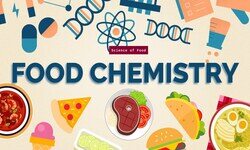
Food chemistry is the study of both biological and non-biological elements of food, chemical processes and their interactions. It is also related to organic chemistry as it deals with the identification and quantification of components of food, such as carbohydrates, lipids, proteins, water, vitamins, and dietary minerals.
It also involves the research and synthesis of nutrients and preservatives, as well as other additives that can be used to preserve the quality of food or modify its colour, flavour, and taste. Food chemistry knowledge aids in the creation of proper food handling techniques as well as good manufacturing practises.
- Food Drug Analysis
- Food Additives
- Food Bio-Actives
- Food Components and Ingredients
- Food Adulteration and Fortification
- Food Flavouring and Coating
SESSION 8: RESEARCH IN NUTRITION AND FOOD SCIENCE
Food Science helps in the preparation of nourishment items from the raw materials of rural areas that are sufficient for human utilization. A Food Scientist has the ability to change over these craw materials into the protected, appealing nourishment items and drinks accessible on our grocery store racks. Nutrient Scientists continually look to enhance existing systems by which new items are created, prepared, bundled, put away, and transported.
- Clinical Nutrition
- Nutrition and Cancer
- Probiotics and Prebiotics
- Paediatric Nutrition
- Plant Nutrition
- Animal and Diary Nutrition
- Public Health Research
Food Science is a dynamic field to concentrate on that applies sciences, for example, Chemistry, Biochemistry, and Microbiology to find optimal approaches to enhance the taste, nourishment, and nature of the world's nourishment supply. Micro-organisms were used in industrial processes and thus useful in preserving and contaminating food even before their existence was known. The production of fermented beverages and vinegar, and the leavening of bread are all traditional processes and preserved by using enzymes that have come down to us from time immemorial. The discovery of micro-organisms with their multiplicity of highly specific biochemical activities has quickened a sustainable growth of industrial fermentation processes.
- Dairy Science and Technology
- Meat Science and Processing
- Wine Industry
- Sea Food Processing
- Cereal and Bakery Industry
- Vegetable and Fruit Industry
SESSION 9: FOOD LAWS AND REGULATION

National legal systems are a critical component of a successful food control system. The nourishment legislation has minimum quality requirements to ensure that the food supplied is unadulterated and not subjected to any deceptive activities intended to defraud the consumer. Sustenance legislation should cover the entire supply chain, from animal care arrangements to on-farm controls and early handling, all the way to final delivery and use by the consumer. Is a rational teaching that depicts coping with, preparing, and sustenance capability in ways that lead to foodborne disease. The tracks within this line of thinking are business and consumer well-being, followed by market and purchaser well-being.
- Food protection and regulations
- Food Legislation
- Food Safety and Quality Law
- Packaging and Labelling Law
- Licensing Registration and Sanitary Permits
- Consumer Health
- Industry-market compatibility
- nourishment & Sustenance legislation
SESSION 10: FOOD AND HUMAN HEALTH
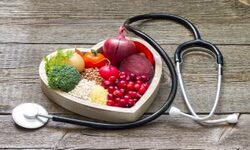
A balanced and nutritious diet is the connection between food and human health. The dietician assisted participants in making dietary changes, such as consuming less junk food and more nutrient-dense foods like fruits, vegetables, fish, and legumes. People are now realising that there is a biochemical and physical connection between what we eat, how it makes us feel, and our mental wellbeing, in addition to a psychological one. When it comes to common diseases like diabetes, cancer, high blood pressure, and heart disease, there's a lot of debate about how nutrition plays a role and how you can lower the risk by consuming certain foods and adopting certain diet habits. The same can be said about mental health.
- Food for Depression, anxiety and stress
- Effect of food on hormones
- Food Perception
- Health Hazards
- Junk Foods
SESSION 11: FOOD INDUSTRY AND FOOD INNOVATION
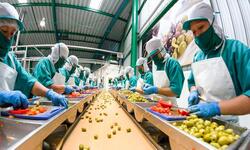
The food industry is a complex, global network of diverse businesses that supplies most of the food consumed by the world's population. The term food industries covers a series of industrial activities directed at the production, distribution, processing, conversion, preparation, preservation, transport, certification and packaging of foodstuffs. The food industry today has become highly diversified, with manufacturing ranging from small, traditional, family-run activities that are highly labour-intensive, to large, capital-intensive and highly mechanized industrial processes. Many food industries depend almost entirely on local agriculture, produce, or fishing.
- Food Innovation
- Beverage Industry
- Meat and Poultry Food
- Refrigerated and Frozen Food
- Grocery
- Food Service
Recommended Conferences: Food Conferences 2022 | Food Microbiology Conferences | Food Chemistry Conferences | Food Safety Conferences | Food Technology Conferences | Food Engineering Conferences | Food Science Conferences | Food Sensors Conferences | Food Pathogen Conferences | Foodborne Disease conferences | Upcoming Food Conferences | International Food Conferences | Food Conference in France
Related Societies:
- American society for Micro Biology
- Society for General Micro Biology
- Swiss Society for Micro Biology
- Society for applied Microbiology
- International Union of Microbiological societies
- Federation of European Microbiological Societies
Related Companies:
- Gilead Sciences, Inc.
- Amgen, Inc.
- Celgene Corporation
- Biogen Idec, Inc.
- Regeneron Pharmaceuticals, Inc.
- Alexion Pharmaceuticals, Inc.
- Vertex Pharmaceuticals, Inc.
- Illumina, Inc.
- BioMarin Pharmaceutical, Inc.
- Agilent Technologies, Inc.
Market Analysis
Global Market of Food Microbiology and Food Products
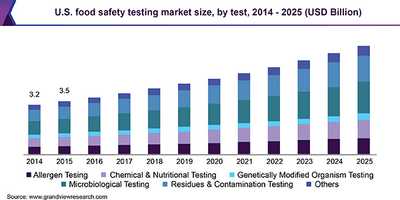
Food Microbiology
The Global Food Microbiology Market report studies current and upcoming development prospects to assist interest for the Food Microbiology Testing over the figure time-frame.
The U.S. market for Food Microbiology and foodstuff totalled nearly $56.4 billion in 2014. This market is predicted to approach $61.4 billion in 2015 and $69.4 billion by 2020, registering a compound annual growth rate (CAGR) of 2.5% through 2021.
Food Security
Achieving greater global food security may be a noble goal and, many would argue, an ethical responsibility. It is also squarely within our self-interest because hunger causes unrest and instability, which successively affect U.S. national security and commercial interests. Global food security requires a multi-pronged strategy. Increased investment in research and development and improvements to production capacity is absolutely vital to increase the availability of food and meet increased demand.
Rapid urbanization, particularly in developing countries, is a critical on-going trend shaping food security and nutrition that will continue in 2017 and beyond. Nearly 90 per cent of the projected urban population increase is concentrated in Africa and Asia, with China, India, and Nigeria alone expected to feature 900 million urban residents by 2050
Food and Nutrition
The research uncovers many paradigm shifts within the studied market, in terms of regional competitive advantage, competitive landscape among the key players within the clinical nutrition industry, and market dynamics.
The global Food and nutrition market should reach $60.8 billion by 2022 from $48.2 billion in 2017 at a compound annual rate of growth (CAGR) of 4.8% for the amount 2017-2022.
Food Safety
Global Markets and Technologies for Food Safety Testing organizes information from diverse sources and market segments into a cohesive unit that has a summary, overview, technologies, contaminants tested, foods tested, industry structure, international aspects, patent activity, and company market shares, annual revenues and profiles. Market measurements/estimates and forecasts are provided for the worldwide market, and key market dynamics are discussed and their possible effects analyzed.
The global food safety testing market reached $10.5 billion in 2014 and will reach about $13.6 billion in 2019 with a five-year compound annual growth (CAGR) of 5.3% through 2019.
Conference Announcement
Important Dates
- Abstract Submission Start Date: September 01, 2021
- Abstract Submission Last Date: April 30, 2022
- Early Bird Registration Date: February 28, 2022
Important Links
Contact Details:
- Email: foodcongress@globalconferences.net
- Phone Number: +44 203-966-4287
- Whatsapp Number: +44 742-605-6247
- Connect in Linkedin
Participant List:
Dr. Franc Janyce - Abstract
Dele Raheem – Presentation Abstract
Dr. Luis Gonzalez Vaque
Atefeh Nasri - Abstract
Dr. Marcela Albuquerque - Abstract
Dr. Prakash R Kondekar - Abstract
Dr. Hisham R Ibrahim - Abstract
Ms. Niloofar Pejaman - Abstract
Dr. Bhupinder Singh
Maciej Combrzyński - Abstract
Beata Biernacka - Abstract
Tomasz Oniszczuk - Abstract
Agnieszka Wójtowicz - Abstract
Marcin Mitrus - Abstract
Renata RóżyÅ‚o - Abstract
Past Conference Report
Euro Food 2019
The 22nd Euro-Global Summit on Food and Beverages organized by conference series was held in London, UK during February 28-March 01, 2019. Active involvement and generous comeback were received from the organizing committee members, editorial board members of conference series journals as well as from prominent scientists, researchers and young student community. Researchers and students who disclosed up from different parts of the globe have made the conference one of the most effective and prolific events in 2019. The conference was noticeable with the presence of renowned scientists, talented young researchers, students and business delegates motivating the three days event into the path of success with thought provoking keynote and plenary presentations highlighting the theme “Next Gen of Food Innovation”.
Past Reports Gallery Food Science Congress 2020
The 29th Annual Meeting on Nutrition & Food Sciences (Nutrition Meeting 2018) hosted by Conference Series LLC Ltd took place at Bangkok, Thailand during November 05-06, 2018. It was organized by Conference Series LLC Ltd and generous response was received from the Editorial Board Members of our Supporting Journals as well as from eminent scientists, talented researchers and young student community. Researchers and students who attended from different parts of the world made the conference one of the most successful and productive events in 2018 from Conference Series LLC Ltd. The program witnessed thought provoking keynote and plenary presentations from experts in the field of Nutrition, highlighting the theme, “Nutrition Food Science &, Innovation".
Past Reports Gallery
To Collaborate Scientific Professionals around the World
Conference Date June 20-21, 2022
Useful Links
Supported By
All accepted abstracts will be published in respective Conference Series International Journals.
Abstracts will be provided with Digital Object Identifier by
